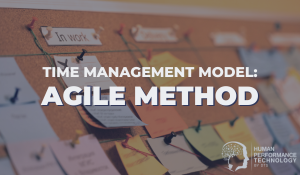Time Management Model: The Ivy Lee Method
The Ivy Lee method is a simple yet effective time management technique that was developed in the early 20th century by productivity consultant, Ivy Lee. The method involves prioritising and focusing on a small number of important tasks each day, in order to increase productivity and reduce stress.
To apply The Ivy Lee method time management model, you can follow these steps:
- Identify Important Tasks - At the end of each day, write down the six most important tasks you need to accomplish tomorrow.
- Prioritise List - Prioritise the tasks in order of importance. Identify the most important task, and rank the others in descending order of importance.
- Focus on Single Task - The next day, focus solely on the first task until it is completed before moving on to the next one.
- Move Incomplete Tasks - If any tasks are not completed by the end of the day, move them to the top of the list for the next day.
- Repeat - Repeat this process every day, using the previous day’s unfinished tasks as a starting point.
The Ivy Lee method can be used to prioritise your tasks and commitments, reduce decision fatigue, and increase your productivity. The method is designed to help you focus on what matters most and avoid getting sidetracked by less important tasks or distractions.
When is the Ivy Lee method most useful?
In our post “10 Super Useful Time Management Models”, we introduced the idea that time management models can usually be organised into three categories; Planning, Prioritising and Executing. We would consider the Ivy Lee method a Prioritising model.
The Ivy Lee method is most useful when you have a lot of tasks to complete but struggle with prioritising them and getting started. It’s especially helpful for those who tend to get overwhelmed by the sheer number of tasks on their to-do list.
The method involves identifying the six most important tasks to complete for the following day and writing them down in order of priority. The next day, you start with the first task and work on it until it’s complete before moving on to the next one. This process helps to keep you focused on one task at a time and helps to prevent feeling overwhelmed.
The Ivy Lee method can also be useful for people who tend to procrastinate or get distracted easily. By focusing on the most important tasks first thing in the morning, you are more likely to make progress and complete them. The sense of accomplishment from completing the most important tasks can also provide motivation to keep going and tackle the less important tasks on the list.
What are the common challenges when people use the Ivy Lee method?
The Ivy Lee method is a simple but effective time management technique, and some common challenges people may face when using this method are:
- Lack of Discipline - The method requires discipline to follow through with the plan, especially when the urge to multitask arises.
- Inability to Prioritise - Prioritising tasks can be difficult for some people, and they may struggle with deciding what is most important to tackle first.
- Failure to Stick to the Plan - The plan needs to be followed consistently to see results. Without discipline, it may be challenging to stick to the plan.
- Overestimating the Amount of Work that can be Accomplished - The method requires realistic estimation of the number of tasks that can be completed in a day. Overestimating can lead to frustration and failure to achieve the set goals.
- Failure to Review Progress - Regular review of the progress made is necessary to know what adjustments to make in the plan. Failure to review progress can lead to stagnation and lack of growth.

Trevor O'Sullivan
General Manager. Since the early 2000s, Trevor has worked with thousands of Talent Management professionals to develop and apply assessment-based talent management solutions for selecting, developing and managing people. Trevor is an active member of the TTI Success Insights (TTISI) Global Advisory Council, contributes to TTISI product development and is a regular presenter at TTISI-R3. He is honoured to have received multiple Blue Diamond Awards and, more recently, the Bill Brooks Impact Award recognising his contributions to the TTISI global network.



We Would Like to Hear From You (0 Comments)